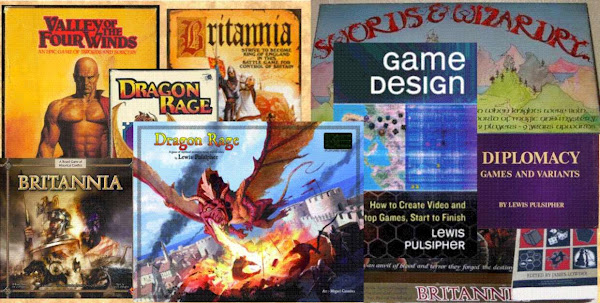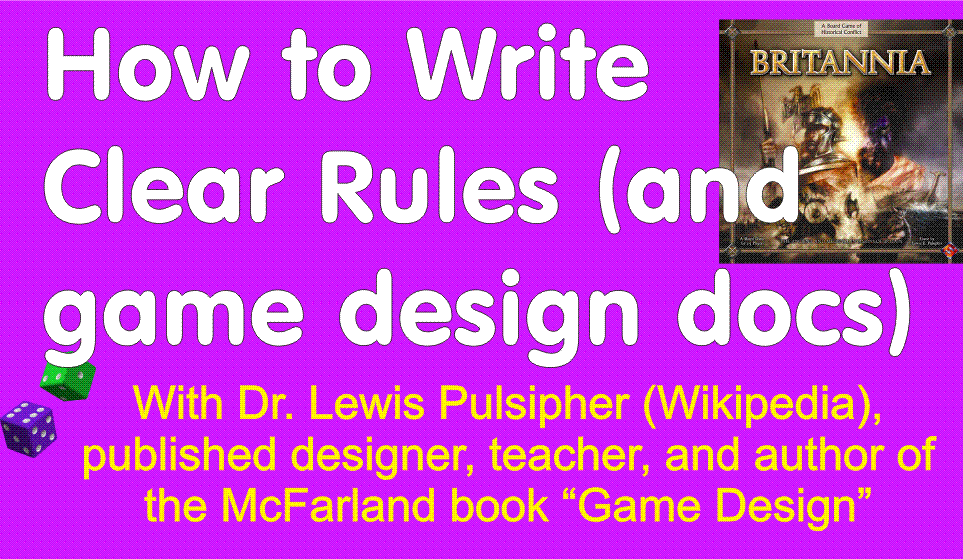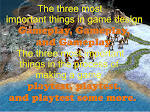In a 2011 survey published by Josiah Lebowitz and Chris Klug, people who identified themselves as "gamers" were asked to provide the three most important factors when determining whether or not to purchase a game. The most popular response? 52% of all respondents included "story" as one of the three most important factors. The second most popular determining factor was "gameplay mechanics", ranking in at 42%. Genre came in third at 37%.
Let's differentiate between narrative - an account of what happens, which is in every game ever played - and story, something with characters, plot, conflict, setting, point of view, and climax/denoument that is imposed on or part of the game, coming from the designers/developers.
Every game has narrative, even abstract ones. Someone can tell you the "story" (narrative) of a chess game they played. Such narratives may not be interesting to anyone but themselves and their friends, because it lacks some (many?) of the elements of professional stories.
"Story" in the above sense is primarily used to help sell/market a game. When players actually play, most are interested in the play of the game.
Stories wear out. You finish the story, you're finished with the game. Games, if they're really good, don't wear out, there's something new each time that keeps players coming back (much more common with tabletop games than video games). Much of that newness comes from the unpredictability and boundless creativity of human opposition.
Commenters on a tweet bout this pointed out that some games (e.g. Once Upon a Time, Betrayal at House on the Hill) have many stories built in. I don't know OUaT, but in Betrayal the "stories" are so simple they're more alternate narratives. Another said "Timeless stories don't wear out." True for Lord of the Rings or Star Wars, but even those you probably won't revisit more than once a year, probably much less.
Puzzles in "games" wear out just as stories do, once you've solved the puzzle(s).
For that reason, during development, when there's a conflict between the story and the gameplay, gameplay usually wins out. Which makes it hard for a game to have a coherent professional story.
An "atmosphere" is the trappings of a story without the content.
Atmosphere doesn't alter how the game plays, whereas story ought to.
You can add an atmosphere to a game late in the day. Story has to be built in.
But atmosphere can be used to sell the game, it doesn't really need to have a coherent professional story. And as John Carmack (Doom and many other games) said, story in a video game is like story in pornography, an excuse to get to the action.
Many game devs are frustrated film-makers or novelists who want to tell a story. But in the main, games - other than RPGs and expensive video games, perhaps - are poor mediums for story-telling. It's like using a spreadsheet to do word processing. You can do it, but it's very inefficient, and limited.
Friday, January 27, 2017
Monday, January 09, 2017
My recent screencasts on YouTube
I rarely get around to posting individual links to my "Game Design" YouTube channel, so I decided to list the most recent five screencasts instead.
Special Powers Card Games (SPCG)
Special Powers Card Games (Magic:the Gathering, Munchkin, many others) is a category that attracts many aspiring designers. But designers should avoid CCGs, and look at other kinds of SPCG.
https://youtu.be/9Q4ffTs_lfk
Charlemagne and "Yomi"
This is about two different and conrasting game playing styles. I use Charlemagne to represent "minimax" and "yomi" is a Japanese word adopted by David Sirlin to represent those who try to read the intentions and anticipate their opponents.
https://youtu.be/0dSh93LkeUk
The Demise of "Favorite" Games
When I taught video game design classes I asked students about their favorite games. Turned out, many of them had no favorites, or could only pick the game they were currently playing. How different from many years ago. Here's why, which has a lot to do with changes in the nature of games and how people play them.
https://youtu.be/C4CgD9UTH1k
Why is it so hard to persuade people to playtest prototypes?
I've just added this video to my online course "Playtesting: the Heart of Game Design" (about 6.5 hours). Discount URL: https://www.udemy.com/game-playtesting/?couponCode=PT25
This is by far the most comprehensive discussion of game playtesting in the world, to my knowledge. Converted to words, it's the size of a small novel, in 64 parts, including examples of playtesting notes I've taken over the years.
https://youtu.be/Ijq8xpV8fjs
Flexibility in Games
A seldom-discussed aspect of games - especially tabletop games - is their flexibility. Can the game be played to varying lengths, by varying numbers of players? Can players join in after the game has begun?
https://youtu.be/SiG_Xhe6rQs
Special Powers Card Games (SPCG)
Special Powers Card Games (Magic:the Gathering, Munchkin, many others) is a category that attracts many aspiring designers. But designers should avoid CCGs, and look at other kinds of SPCG.
https://youtu.be/9Q4ffTs_lfk
Charlemagne and "Yomi"
This is about two different and conrasting game playing styles. I use Charlemagne to represent "minimax" and "yomi" is a Japanese word adopted by David Sirlin to represent those who try to read the intentions and anticipate their opponents.
https://youtu.be/0dSh93LkeUk
The Demise of "Favorite" Games
When I taught video game design classes I asked students about their favorite games. Turned out, many of them had no favorites, or could only pick the game they were currently playing. How different from many years ago. Here's why, which has a lot to do with changes in the nature of games and how people play them.
https://youtu.be/C4CgD9UTH1k
Why is it so hard to persuade people to playtest prototypes?
I've just added this video to my online course "Playtesting: the Heart of Game Design" (about 6.5 hours). Discount URL: https://www.udemy.com/game-playtesting/?couponCode=PT25
This is by far the most comprehensive discussion of game playtesting in the world, to my knowledge. Converted to words, it's the size of a small novel, in 64 parts, including examples of playtesting notes I've taken over the years.
https://youtu.be/Ijq8xpV8fjs
Flexibility in Games
A seldom-discussed aspect of games - especially tabletop games - is their flexibility. Can the game be played to varying lengths, by varying numbers of players? Can players join in after the game has begun?
https://youtu.be/SiG_Xhe6rQs
Subscribe to:
Posts (Atom)










